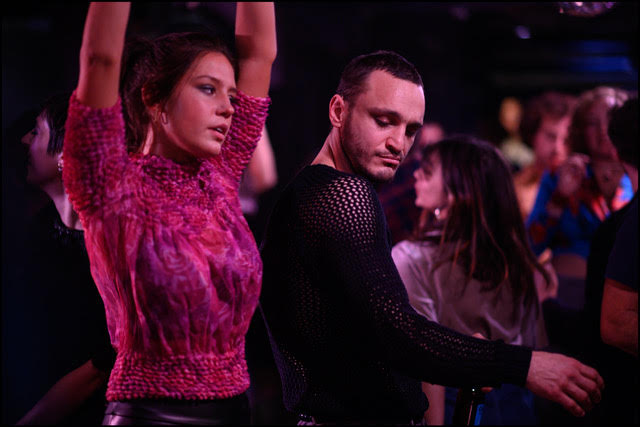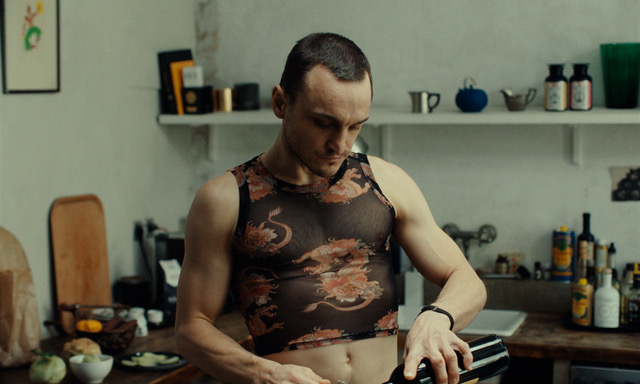FILM REVIEW: PASSAGES
Rating: NC-17
Running Time: 92 Minutes
Release Date: August 4, 2023
At The Movies With…Lady Beverly Cohn, Editor-at-Large
As a film critic, I’m sure you can imagine that I see dozens and dozens of films annually. Some disappear from my memory bank almost immediately, while others linger for quite a while. Director Ira Sachs, who co-wrote “Passages” with Mauricio Zacharias, has created a complicated sexual tapestry that I can assure you will keep you engaged until the very last scene and beyond.
I can say that because at a recent press screening, we journalists, many of whom generally leave before the end of the credits roll, sat until the very last name appeared on the screen and were still seated when the lights came up. That tells you a lot about the impact this film had on a very discerning audience. Okay, I’ve kept you wondering long enough, so here’s the story.

There are three main characters in this film. Tomas, brilliantly played by Franz Rogowski, is a German filmmaker living in Paris. He possesses an almost insatiable pursuit of personal pleasure without much regard for the potential consequences. He is married to a very stable, understanding Martin, tenderly played by Ben Whishaw. It is wrap night for Tomas’ latest film, and a cast celebration ensues. It is during this party at a bar that Tomas meets Agathe, a French woman wonderfully played by Adèle Exarchopoulos.
The attraction is mutual, and before you can say heterosexual, the two of them are wrapped in each other’s arms, the result of which awakens something in Tomas’ body. Needing to be honest with his husband, he reveals his sexual encounter, commenting: “I felt feelings I’ve never felt before,” and insists that the ever-patient Martin be happy for him. In an effort to bring his husband into this new sexual experience, he invites Martin and Agathe to engage in a ménage à trois, which proves to be less than satisfactory for the participants, especially Agathe, who is clearly in love with Tomas.

Pursuing his hedonistic leanings, Tomas continues seeing Agathe while Martin lets it play out until he can no longer tolerate the situation, and they separate. Tomas and Agathe move in together, and Martin begins living with Amad, a writer well-played by Erwan Kepoa Falé. Not particularly liking “what’s good for the goose is good for the gander,” Tomas is insanely jealous, and much to Martin’s chagrin, his ex-husband continuously shows up at what was their house.
The cuckolded partner admonishes him over and over, repeating that it is no longer his home and that he cannot just appear without calling first. I guess they have what you would call “pity sex” as the over-wrought Tomas plays upon Martin’s emotions which have him on the fence about his relationship with Amad. The excellent storytelling slowly reveals just how selfish Tomas is and how those closest to him must subsequently wade through the emotional debris he leaves behind.

Throughout the film, we see the compelling effects of Sachs’ collaboration with cinematographer Josée Deschênes, whose penetrating, slow-moving camera, with its long-lingering reaction shots, allows the audience to fully absorb the most intimate and sexual moments, as well as the inherent emotional fall-out that befalls each of the characters.
I need to make one thing quite clear. This is not a sexually exploitative film. This is the story of how one man intersects with two people in pursuit of his own pleasure and the unintended painful results suffered by everyone. I can assure you that Sachs’ meticulous weaving of the connective threads of this complicated tapestry will most likely keep you in your seats until the very last name appears on the credit roll.













